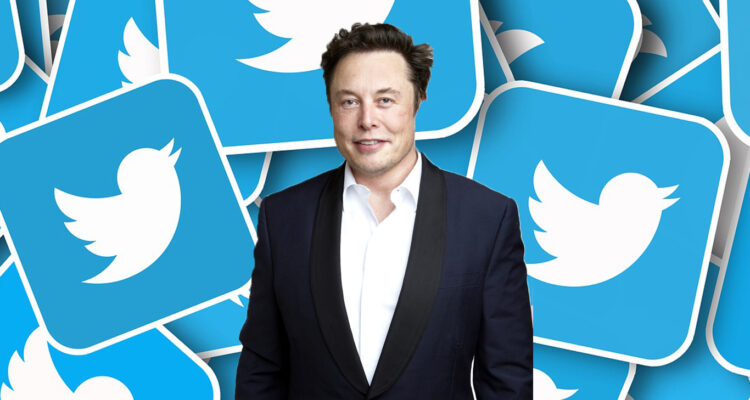The social media behemoth said on Monday that Tesla CEO Elon Musk, a billionaire, will buy the company for $44 billion.
Yes, the news is right; Elon Musk is on his way to acquiring Twitter. Post which, the firm will become privately held, and this deal is likely to be complete this year. Musk started buying Twitter shares almost three months ago, pressing on increasing his holding from 5% to more than 9% and delivering serious hints that he wished to dominate the social media network. Musk’s acquisition has come about five months after Jack Dorsey, the company’s CEO and founder, stepped down and was replaced by Agrawal.
Late Monday, Dorsey expressed his support for Musk’s takeover of Twitter, stating that he is pleased that Twitter would “continue to serve the public conversation” all around the world. Musk announced last week that he had secured $46.5 billion in finance to purchase Twitter and that he was still in talks with the firm.
Musk eventually acquired that 9% interest in Twitter earlier this month, making him one of the company’s largest stockholders. Twitter retaliated by announcing Musk’s appointment to its board of directors. Although, Musk would have been barred from owning more than 14.9 percent of Twitter’s outstanding stock for the duration of his board membership and for 90 days afterward under that agreement.
Agrawal tweeted a few days later that Musk had opted not to enter the board. Musk subsequently announced his intention to buy the company in a regulatory filing. Despite its cultural influence, Twitter has lagged behind social media rivals such as Meta-owned Facebook and Instagram, Snapchat, and TikTok, with an estimated 416 million weekly followers as of April 16, according to data.ai a mobile data and analytics firm.
According to Backlinko.com, other analysts estimate Twitter to have roughly 200 million users, significantly fewer than TikTok’s 1 billion. According to data.ai, Twitter lags behind competitors in several important indicators, including monthly users and the number of weekly app downloads internationally.
Musk quipped earlier this month that owning Twitter wouldn’t be too painful. However, if he puts the platform on a collision course with the rising body of regulation that is being applied to social media services all over the world, the self-proclaimed “free speech absolutist” may be inviting a world of trouble for him.
The transaction sparked immediate concerns that Musk, a self-described “free speech absolutist,” will roll back content regulation, potentially undoing years of work to prevent hate speech and misinformation from spreading unchecked. But, at a time when even employees are unsure about the company’s future, experts have been quick to warn of the possible privacy ramifications of the $44 billion acquisition to take Twitter private.
One of Musk’s numerous planned initiatives for Twitter that has caused controversy in the business is the accessibility of the platform’s algorithmic code that makes it publicly available, according to his brief 78-word statement. Musk claims that this change, which Twitter has been considering for some time, will help to restore trust in the system, which has been plagued by false news and security breaches in recent years, including one in which hackers hijacked high-profile Twitter profiles, including Musk’s, to promote a cryptocurrency scam.
Professor Eerke Boiten, the head of De Montfort University’s faculty of computer science and informatics, warned that open-sourcing Twitter’s algorithm might lead to malevolent actors “gaming” the system, resulting in people being treated differently depending on personal traits.
According to a new SEC filing, if Elon Musk does not complete his $44 billion acquisition of Twitter, he will be required to pay Twitter a $1 billion cancellation fee. Twitter would be required to pay the same price under certain conditions, according to the document, which details all terms of the agreement. The billionaire tech executive decided to buy Twitter for $54.20 per share and take it private, pricing the company at about $43.4 billion.
The money for the acquisition is coming from a variety of places, including Morgan Stanley as well as other financial institutions, which have agreed to provide $13 billion in financing, as well as $12.5 billion in margin loans against Musk’s shares in Tesla and other businesses. Musk is projected to provide around $21 billion in stock financing.
If Musk needs to get out of this contract for whatever reason, he’ll pay a fee that’s not insignificant but not out of the ordinary for a deal this big. In other words, if Musk’s funding falls through, Twitter will receive $1 billion.
For more blogs check out: Blogs



No Comments